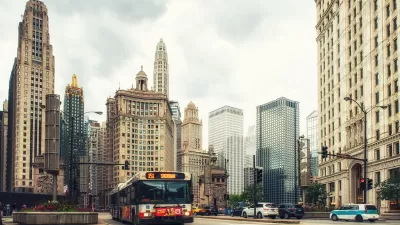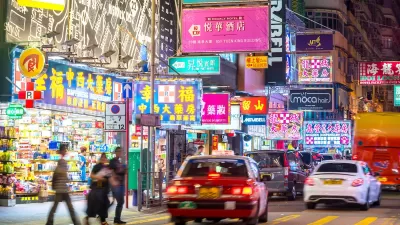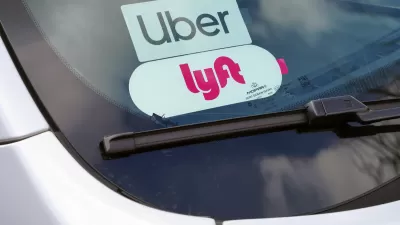Change is afoot for transportation around destinations like Southwest Florida. Are cities like Tampa still planning too much for the old rental car model, and not for a future of transportation network companies, carsharing, and self-driving cars?

Robert Trigaux wonders if efforts to build a "a big rental car facility at the next-generation Tampa International Airport," reflects a planning focus that looks back rather than forward. The problem, according to Trigaux, is a growing body of evidence that U.S. business travelers are choosing to travel with the help of transportation network companies like Uber and Lyft rather than rental cars.
The study, by travel- and expense-management software provider Certify, finds that "Uber accounted for 43 percent of ground transportation transactions, while rental cars had 40 percent. Led by Uber and Lyft, ride-hailing services surpassed rental cars for the first time in the fourth quarter of 2015 and have since widened their lead."
The trend threatens to impact Southwest Florida beyond the plans to build a large rental car facility near the Tampa International Airport. The rental car company Hertz relocated to Florida from New Jersey in 2013, bringing hopes of expansion and thousands of new jobs with it. Now, however, Hertz "has issued recent earnings warnings and its stock, just under $30 a share in mid 2014, closed Thursday at just over $9 a share."
Trigaux also notes that Zipcar will soon launch its membership-based car-sharing service in Downtown Tampa. As reported in January 2013, Zipcar will be included in the footprint of the new airport rental car facility.
FULL STORY: As Uber grows and rental car companies struggle, is Tampa Bay planning for yesterday?

Planetizen Federal Action Tracker
A weekly monitor of how Trump’s orders and actions are impacting planners and planning in America.

Maui's Vacation Rental Debate Turns Ugly
Verbal attacks, misinformation campaigns and fistfights plague a high-stakes debate to convert thousands of vacation rentals into long-term housing.

Restaurant Patios Were a Pandemic Win — Why Were They so Hard to Keep?
Social distancing requirements and changes in travel patterns prompted cities to pilot new uses for street and sidewalk space. Then it got complicated.

In California Battle of Housing vs. Environment, Housing Just Won
A new state law significantly limits the power of CEQA, an environmental review law that served as a powerful tool for blocking new development.

Boulder Eliminates Parking Minimums Citywide
Officials estimate the cost of building a single underground parking space at up to $100,000.

Orange County, Florida Adopts Largest US “Sprawl Repair” Code
The ‘Orange Code’ seeks to rectify decades of sprawl-inducing, car-oriented development.
Urban Design for Planners 1: Software Tools
This six-course series explores essential urban design concepts using open source software and equips planners with the tools they need to participate fully in the urban design process.
Planning for Universal Design
Learn the tools for implementing Universal Design in planning regulations.
Heyer Gruel & Associates PA
JM Goldson LLC
Custer County Colorado
City of Camden Redevelopment Agency
City of Astoria
Transportation Research & Education Center (TREC) at Portland State University
Jefferson Parish Government
Camden Redevelopment Agency
City of Claremont





























